MercoPress. South Atlantic News Agency
Tag: Inflation
-
Wednesday, February 16th 2022 - 09:22 UTC
Inflation remains strong in Chile; Central bank expected to take reference rate to 8% next May

A survey of financial operators in Chile anticipates that the aggressive policy of the country's central bank to combat rising prices will continue to hike interest rates, anticipating the basic rate from the bank's Monetary Policy office will be reaching 8% by next May.
-
Thursday, February 3rd 2022 - 09:55 UTC
Brazil rises Selic interest rates amid growing inflation
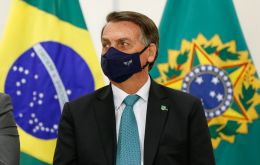
Brazil's Central Bank (BCB) Wednesday increased its benchmark interest rate (Selic) by 1.5 percentage points, reaching 10.75%, the first time in five years it hit double digits, amid a growing inflation and despite the consequences, this measure may have on economic growth.
-
Friday, January 28th 2022 - 11:50 UTC
Chile raises reference rate to 5,5% to combat inflation: More could come

The Chilean central bank hiked its reference rate from 4% to 5,5% to contain inflation which last year reached 7,2%, the highest in fourteen years. The Monetary Policy council of the bank on Wednesday agreed unanimously to increase the reference rate by 150 base points, according to the official release.
-
Thursday, January 27th 2022 - 19:53 UTC
WaPo tells Americans not to fret over local inflation: Argentina is worse off
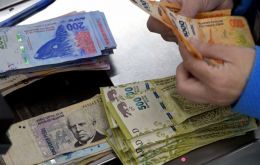
An article published by The Washington Post highlights Argentina's inflationary tradition and suggests US citizens should take a look at the South American country's “way of economic life” after prices locally rose around 7% in one year.
-
Wednesday, January 26th 2022 - 09:40 UTC
ECLAC needs to set aside four rogue countries to measure inflation for year 2021
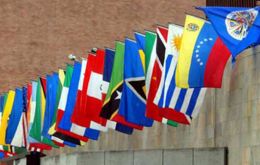
Inflation in Latin America for the year 2021 was way above projections, the Economic Commission for Latin America and the Caribbean (ECLAC) has said in a report issued from its Santiago headquarters.
-
Monday, January 24th 2022 - 09:23 UTC
Global Inflation: Brazil's Guedes and Europe's Lagarde have opposing positions
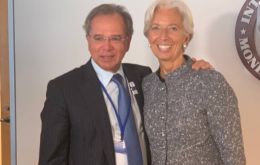
Brazilian economy minister Paulo Guedes said that inflation will become a long-term challenge for Western countries, since “the beast is already out of the bottle”, and central bankers have been caught “sleeping at the driving wheel”.
-
Monday, January 17th 2022 - 09:50 UTC
Annual inflation in Patagonia reached 51,6% in 2021, despite many government regulated prices
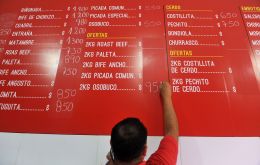
The Consumers Price Index in Argentine Patagonia, mainly Tierra del Fuego, was 3,1% in December accumulating 51,6% in the twelve months of 2021, in the range of the overall Argentine inflation last year, 50,9%.
-
Thursday, January 13th 2022 - 09:59 UTC
Latin America forecasted to grow a soft 2,6% in 2022 and 2,7% in 2023, World Bank
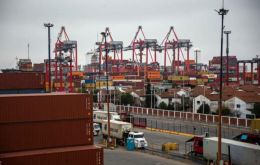
Growth in Latin America and the Caribbean region (LAC) rebounded to an estimated 6.7% in 2021, driven by favorable external conditions and pandemic-related developments, according to the World Bank's Global Economic Prospects. Region-wide new COVID-19 cases dropped sharply in the second half of the year, before surging in late December, even as the vaccination rollout progressed. Strong demand in key export destinations (the United States and China), high commodity prices, and continued high remittances to Central American and Caribbean countries were also supportive of growth in 2021.
-
Thursday, January 13th 2022 - 09:48 UTC
World economy is facing Covid-19, inflation and policy uncertainty, Global Economic Prospects

Following a strong rebound in 2021, the global economy is entering a pronounced slowdown amid fresh threats from COVID-19 variants and a rise in inflation, debt, and income inequality that could endanger the recovery in emerging and developing economies, according to the World Bank’s latest Global Economic Prospects report. Global growth is expected to decelerate markedly from 5.5% in 2021 to 4.1% in 2022 and 3.2% in 2023 as pent-up demand dissipates and as fiscal and monetary support is unwound across the world.
-
Wednesday, January 12th 2022 - 09:55 UTC
Brazil's inflation for 2021 reaches 10.06%

Brazil's inflation for the year 2021 has reached 10.06%, which was the country's highest in the past six years, driven mainly by the rise in fuel prices and by the energy crisis, the Brazilian Institute of Geography and Statistics (IBGE) announced Tuesday.
